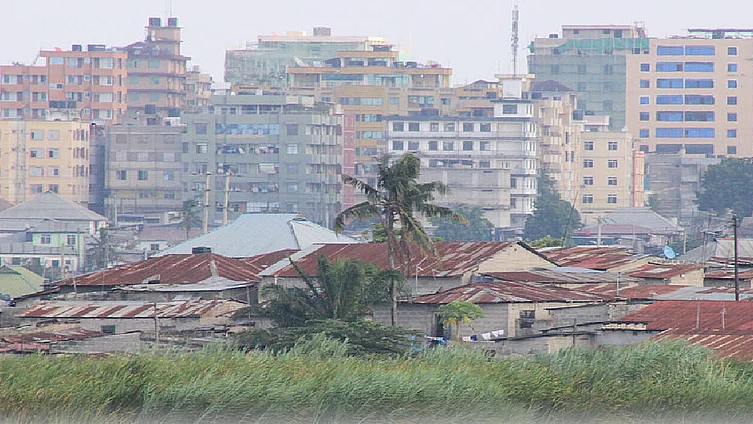Urban infrastructure financialisation in African cities
Okonjo, Jeremmy ; Sego, Janet Jebichii ; Chege, Olive | Dar es Salaam : Friedrich-Ebert-Stiftung, Tanzania Office, July 2024

Almost half of Tanzania’s population (49 percent; UN-DESA 2018) will reside in cities by 2040. Despite this fast urban population growth rate, urbanization in Tanzania happens unplanned which reproduces and aggravates inequality. This is evidenced by the lack of access to affordable services, such as housing and mobility. The urban space is typically seen as largely informal, but the informal and formal are closely interconnected.
Since 2020, FES brings together an independent, multidisciplinary coalition of urban practitioners under the umbrella of ‘Just City Platform’ (JCP) – that comes forward with progressive proposals for the gender and socially just provision of public goods and services, for example, housing. This is done, so that urbanization which is characterized by informality such as informal residence, informal occupation as well as informal interactions with authorities, can be shaped in a more far-sighted, people-centered and inclusive direction. Increasing citizen participation in urban planning and building alliances – where those who have knowledge about challenges and who are directly impacted, are linked with NGOs, professionals and academia, local government authorities and community leaders – will transform urban development towards sustainable, context sensitive solutions for the supply of public services and goods and urban infrastructure.
The concept of the Just City envisions urban environments where diversity, equity, and inclusion are central to city governance and design. Ensuring that all residents, regardless of race, gender, socio-economic status, or ethnicity, have equal access to opportunities and services such as decent work, health care, transport, education, and housing is at the core of the Just City. This concept aims to create spaces that foster dignity by recognizing residents of informal areas as equal citizens and emphasizes democratic urban planning that includes diverse voices and perspectives. Public safety is a priority, focusing on physical safety, adequate space, and social safety mechanisms, especially for vulnerable groups like women, the elderly, children, and people with disabilities. Accessibility and affordability are key for a socially inclusive Just Cities.
In cooperation with local, regional, and international partners, FES addresses critical urban challenges such as transport and housing, promoting sustainability and resilience to ensure a fair, inclusive, and sustainable urban future for all. For further information on our Just City work in Africa, see our Just City Website.
Okonjo, Jeremmy ; Sego, Janet Jebichii ; Chege, Olive | Dar es Salaam : Friedrich-Ebert-Stiftung, Tanzania Office, July 2024
Lukalo-Owino, Rose ; Omenya, Alfred ; Akoth, Steve Ouma | Dar es Salaam : Friedrich-Ebert-Stiftung ; Nairobi : UN-Habitat, [2024]
Nyiti, Albert ; Komu, Felician ; Carrizosa, María ; Limbumba, Tatu Mtwangi ; Ndezi, Tim ; Nnkya, Tumsifu Jonas | Dar es Salaam : Friedrich-Ebert-Stiftung, Tanzania Office, [2022]
essays on urban housing